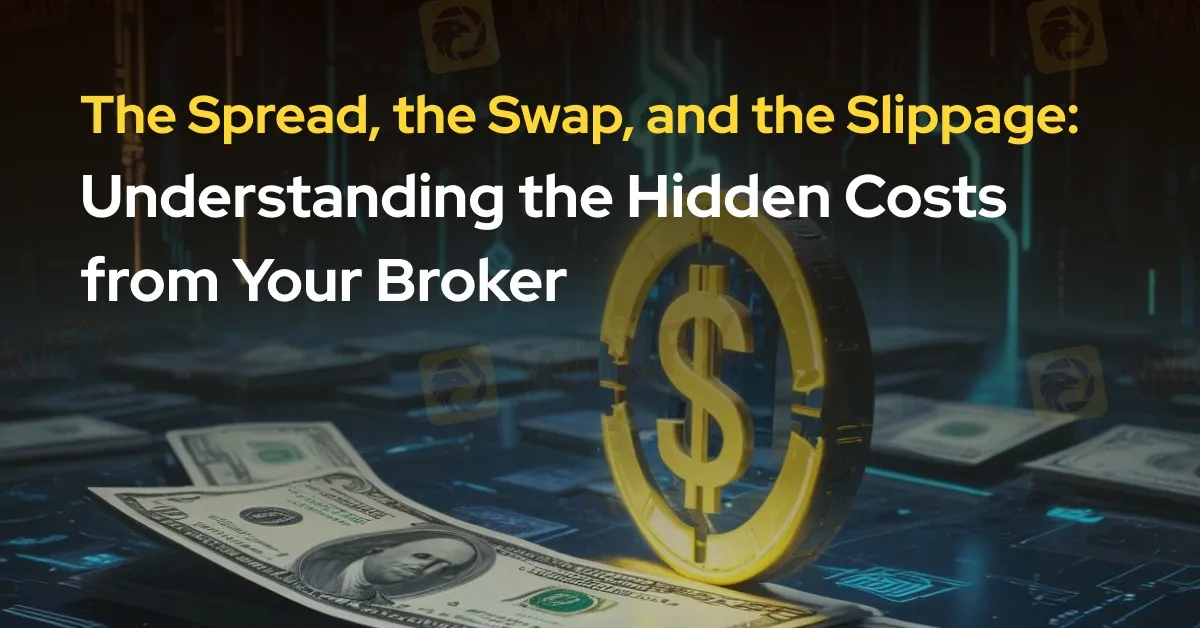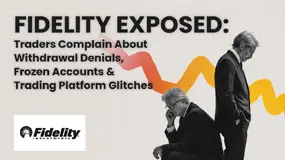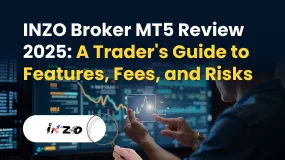简体中文
繁體中文
English
Pусский
日本語
ภาษาไทย
Tiếng Việt
Bahasa Indonesia
Español
हिन्दी
Filippiiniläinen
Français
Deutsch
Português
Türkçe
한국어
العربية
The Spread, the Swap, and the Slippage: Understanding the Hidden Costs from Your Broker
Abstract:Hidden costs like spreads, swaps, and slippage can eat away at your profits if not managed carefully. Brokers often gloss over these costs, leaving traders unaware of their true impact. Understanding how these fees work is essential for any trader who wants to maintain profitability and avoid unnecessary losses.

When trading forex or crypto, its easy to focus on price movements and ignore the more subtle factors affecting your bottom line. However, hidden costs like spreads, swaps, and slippage can eat away at your profits if not managed carefully. Brokers often gloss over these costs, leaving traders unaware of their true impact. Understanding how these fees work is essential for any trader who wants to maintain profitability and avoid unnecessary losses.

The spread is the difference between the bid (sell) and ask (buy) price of a currency pair or crypto asset. This is where your broker makes money on each trade, and its a cost you face every time you enter and exit a position. Spreads can be fixed or variable, with variable spreads widening during periods of high volatility. For example, a spread that is usually 1 pip might balloon to 5 pips during major economic announcements or sudden market moves. While this may seem insignificant at first, for high-frequency traders or those using large positions, the cumulative impact of wider spreads can add up quickly.
To minimize the impact of spreads, traders should carefully select brokers that offer competitive, low spreads, especially under normal market conditions. It is also wise to avoid trading during highly volatile events unless absolutely necessary, as spreads can widen unexpectedly. Additionally, opting for an ECN (Electronic Communication Network) broker can be beneficial since they typically provide tighter spreads compared to traditional market makers, which can significantly reduce the cost of trading over time.

Swap fees, also known as overnight financing or rollover fees, are charged when a trader holds a position overnight. In forex, these fees are determined by the interest rate differential between the two currencies in a pair. In crypto trading, swaps are based on the borrowing costs for holding a leveraged position. Depending on the pair and market conditions, swaps can either be positive or negative, meaning you could earn or pay the fee. Many traders are unaware of the impact these fees can have on their profits, especially if they hold positions for an extended period. Over time, these overnight fees can accumulate, significantly eroding any potential gains.
To reduce the cost of swaps, its important to check the swap rates offered by your broker for each currency pair or asset before placing any trades. If you tend to hold positions for more than a day, some brokers offer swaps-free accounts, which can be a good option for minimizing these costs. Another approach is to close positions before the end of the trading day to avoid unnecessary overnight fees, particularly in markets like crypto where leveraging is common.

Slippage occurs when the price at which your trade is executed differs from the price you intended. This typically happens in fast-moving markets where liquidity is thin or during periods of extreme volatility. Slippage can be particularly frustrating because it often results in traders losing more than expected or missing out on potential profits. For example, you may set a stop-loss order expecting to exit at a certain price, but due to slippage, the actual exit price could be much worse, increasing your losses unexpectedly.
To combat slippage, its advisable to use limit orders instead of market orders. This way, you ensure that your trades are only executed at your specified price, protecting you from the worst effects of slippage. Additionally, avoiding trading during illiquid market conditions or major news releases can help, as these are prime moments for slippage to occur. Choosing brokers with fast execution speeds is also critical, as delays can increase the likelihood of slippage, particularly in volatile markets.
Hidden costs like spreads, swaps, and slippage are an inevitable part of trading, but they dont have to derail your progress. By understanding these fees and taking proactive steps to minimize their impact, you can protect your profits and stay on the path to long-term success.
Ultimately, rushing your trading progress without accounting for these hidden fees is a mistake that many beginners make. Take the time to choose a reputable broker, plan your trades carefully, and stay aware of the costs that can eat into your gains. After all, successful trading isn‘t just about catching the big moves—it’s about managing the small costs that can accumulate over time.

Disclaimer:
The views in this article only represent the author's personal views, and do not constitute investment advice on this platform. This platform does not guarantee the accuracy, completeness and timeliness of the information in the article, and will not be liable for any loss caused by the use of or reliance on the information in the article.
Read more

Fidelity Exposed: Traders Complain About Withdrawal Denials, Frozen Accounts & Platform Glitches
Does Fidelity Investments prevent you from accessing funds despite numerous assurances on your requests? Do you witness an account freeze by the US-based forex broker every time you request withdrawal access? Do you struggle with an unstable trading platform here? Is the slow Fidelity customer service making you face forced liquidation? These issues haunt traders, with many of them voicing their frustration on several broker review platforms such as WikiFX. In this Fidelity review article, we have shared quite a few complaints for you to look at. Read on!

Exposing The Trading Pit: Traders Blame the Broker for Unfair Withdrawal Denials & Account Blocks
Did you receive contradictory emails from The Trading Pit, with one approving payout and another rejecting it, citing trading rule violations? Did you purchase multiple trading accounts but receive a payout on only one of them? Did The Trading Pit prop firm refund you for the remaining accounts without clear reasoning? Did you face account bans despite using limited margins and keeping investment risks to a minimum? These are some raging complaints found under The Trading Pit review. We will share some of these complaints in this article. Take a look.

M&G Review: Traders Report Fund Scams, Misleading Market Info & False Return Promises
Applying for multiple withdrawals at M&G Investments but not getting it into your bank account? Do you see the uncredited withdrawal funds out of your forex trading account on the M&G login? Does the customer support service fail to address this trading issue? Does the misleading market information provided on this forex broker’s trading platform make you lose all your invested capital? Were you lured into investing under the promise of guaranteed forex returns? These issues have become highly common for traders at M&G Investments. In this M&G review article, we have echoed investor sentiments through their complaint screenshots. Take a look!

INZO Broker MT5 Review 2025: A Trader's Guide to Features, Fees and Risks
INZO is a foreign exchange (Forex) and Contracts for Difference (CFD) brokerage company that started working in 2021. The company is registered in Saint Vincent and the Grenadines and regulated offshore. It focuses on serving clients around the world by giving them access to popular trading platforms, especially MetaTrader 5 (MT5) and cTrader. The company offers different types of trading instruments, from currency pairs to cryptocurrencies. It aims to help both new and experienced traders. Read on to know more about it.
WikiFX Broker
Latest News
2 Malaysians Arrested in $1 Million Gold Scam Impersonating Singapore Officials
Moomoo Singapore Opens Investor Boutiques to Strengthen Community
OmegaPro Review: Traders Flood Comment Sections with Withdrawal Denials & Scam Complaints
An Unbiased Review of INZO Broker for Indian Traders: What You Must Know
BotBro’s “30% Return” Scheme Raises New Red Flags Amid Ongoing Fraud Allegations
The 5%ers Review: Is it a Scam or Legit? Find Out from These Trader Comments
WikiEXPO Dubai 2025 Concludes Successfully — Shaping a Transparent, Innovative Future
Admirals Cancels UAE License as Part of Global Restructuring
Forex Expert Recruitment Event – Sharing Insights, Building Rewards
Exness Broker Expands in South Africa with Cape Town Hub
Currency Calculator



